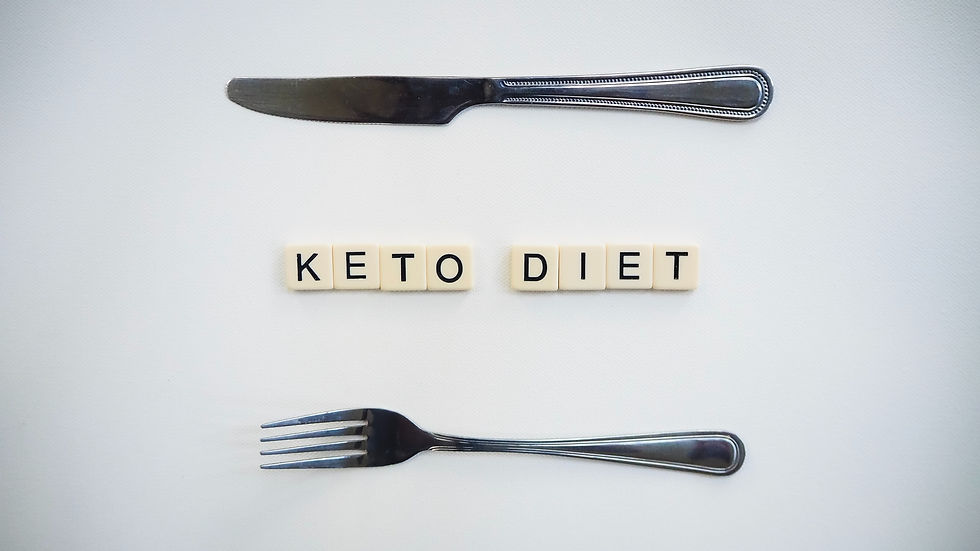More about Ketogenic Diet
- Ms Candice Ho
- Apr 1, 2021
- 2 min read
Ms Candice Ho, HK BioTek Nutritionist

Ketogenic Diet is a diet that reduce carbohydrates and increase fat and protein intake. It suggests that using fat as the main source of energy instead of carbohydrates. So that our body can go through ketosis. Ketosis is a metabolic state which our body started to break down fats into ketones when there are no blood sugar from food.
There are 4 types of ketogenic diets- Standard ketogenic diet (SKD), Cyclical ketogenic diet (CKD), targeted ketogenic diet (TKD) and high protein ketogenic diet. SKD is the most common ketogenic diet which people will follow and it contains just 10% of carbohydrates, 20% protein and 70% of fat.
People who are under ketogenic diet usually avoid food that is high in carbohydrates both starchy and sugary food. For example bread, pasta, rice, potatoes, fruits, beer, soda and candy. And they will eat food like meat, seafood, cheese, natural fat (butter, olive oil, etc) and low carbohydrate vegetables (e.g. Asparagus, avocado, cabbage, spinach, kale, etc)
This diet is mainly used to treat people with epilepsy in the past but now it is a common diet that people use to lose weight. Studies also showed that ketogenic diet have helped patients with neurological disorder like dementia, ALS (amyotrophic lateral sclerosis), traumatic brain injury, acne, cancer, and metabolic disorder. Although Ketogenic diet have a lot of benefits. But you should bear in mind that people who have pancreatic disease, liver condition, thyroid problems, eating disorder or history of eating disorder and gallbladder disease should reconsider trying this diet or should ask their medical profession for some advice.
Other than benefits there are also some risk for example deficiencies in vitamins and minerals deficiencies (vitamin A, C, K and folate) so you might pay more attention to the variety of food and need to take some supplements. Although there are a lot of studies show there is correlation between high fat intake and cardiovascular disease but there is not much studies that show there is correlation between ketogenic diet and cardiovascular disease. Finally everyone has different reaction towards different diet plan so you should watch how your body change when you change to a complete new diet if there are any severe problems you should seek ideas from healthcare professionals.
References:
Shilpa, J., & Mohan, V. (2018, September). Ketogenic diets: Boon or bane? Retrieved February 25, 2021, from https://www.ncbi.nlm.nih.gov/pmc/articles/PMC6251269/
Marcelo Campos, M. (2020, April 27). Ketogenic diet: Is the ultimate low-carb diet good for you? Retrieved February 25, 2021, from https://www.health.harvard.edu/blog/ketogenic-diet-is-the-ultimate-low-carb-diet-good-for-you-2017072712089
Gordon, B. (n.d.). What is the ketogenic diet. Retrieved February 25, 2021, from https://www.eatright.org/health/weight-loss/fad-diets/what-is-the-ketogenic-diet



Commentaires